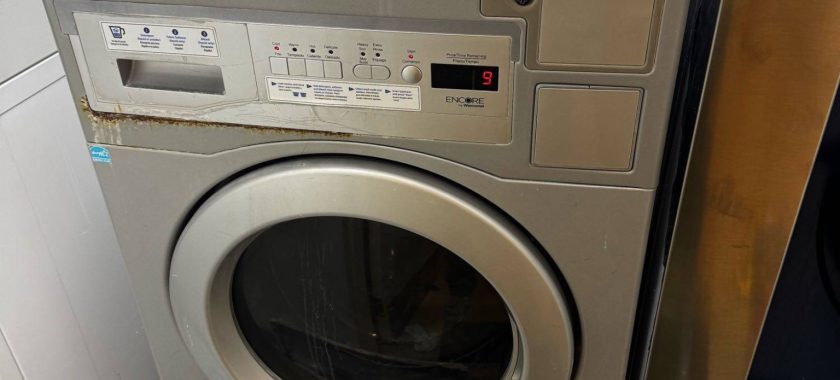Modern washing machines are designed to simplify everyday chores, making laundry fast, predictable, and convenient. However, when your washer suddenly begins delaying the start of its cycle without you activating a delay option, it can become a frustrating and confusing issue. Many homeowners are surprised when the appliance refuses to begin washing immediately, even though no delay start function was selected. This problem often points to two possible causes: a malfunction within the control module or a failure in the system’s sensors.
Understanding why this happens, how it affects your washer’s performance, and what can be done to restore proper operation is important for preventing costly breakdowns and ensuring your appliance runs safely and efficiently. Below, we explore the reasons behind this unexpected delayed start behavior and what steps you can take to resolve the issue.
Why the Washer Starts Late Without You Setting a Delay
A washing machine is controlled by an electronic system made up of a central board, sensors, switches, and communication pathways. If any component begins sending inaccurate data or misinterpreting commands, the washer may behave unpredictably. A delayed start that activates on its own is a classic symptom of internal miscommunication.
The issue usually comes down to one of two culprits:
1. Control Module Glitch
The control module is the digital brain of the washer. It manages all programmed cycles, water intake, timing, motor movement, and safety mechanisms. When a glitch occurs, the module may incorrectly assume that certain options were chosen, even if you never pressed those buttons. This leads to the washer initiating a delayed start automatically.
Control module glitches can be caused by:
- Voltage fluctuations or unstable power
- Worn or oxidized electrical contacts
- Internal board corrosion caused by humidity
- Software errors or disrupted cycle memory
- Overheating inside the control compartment
When the module becomes unstable, it might freeze, misread commands, or queue the wrong cycle settings. This is why you may see the washer hesitating before starting or repeatedly showing a countdown timer that you did not set.
2. Faulty or Misreading Sensors
Sensor systems play a major role in modern washers. They monitor lid position, water level, load weight, temperature, and electrical supply. When one of these sensors fails or becomes unstable, it sends inaccurate data to the control board.
Common sensor-related triggers for delayed start issues include:
- Faulty water level sensor preventing the cycle from initiating
- Load balance sensor misreading weight and forcing delays
- Temperature sensor reporting incorrect internal heat levels
- Door lock sensor not confirming safe closure
- Power supply sensor detecting voltage drops that are not actually happening
When a sensor identifies a condition that is not truly present, the control module may respond by pausing or delaying the cycle. For example, if the washer believes the door is unlocked due to a weak sensor signal, it will refuse to start even though the door is completely secure.
How This Issue Affects Performance
A washer that starts late may also display other symptoms. These indicators help confirm whether a control module or sensor failure is responsible.
You may notice:
- The display panel flickering or resetting
- Random beeping or unresponsive buttons
- Delayed washing cycles across multiple program types
- Unexpected pauses during operation
- Longer cycle times than usual
- Error codes appearing intermittently
Even if the washer eventually begins its cycle, repeated delayed starts can signal a deeper electrical failure. Ignoring the problem may lead to complete control board failure, damaged wiring, or operational breakdown during a wash cycle.
What You Can Do Before Calling a Technician
Some steps can help you identify whether the issue is simple or requires professional repair:
1. Power Reset the Machine
Unplug the washer for 5 to 10 minutes. This clears the control board memory and may correct a temporary glitch.
2. Check for Active Delay Settings
Sometimes the delay start button may have been unintentionally pressed. Ensure all settings are reset to default.
3. Inspect the Door Lock
A loose latch or partially closed door can mimic sensor failure. Make sure the door is firmly closed and the lock clicks.
4. Evaluate Power Conditions
Frequent voltage drops in your home can trigger control panel delays. Try operating the washer during a different time or using a voltage stabilizer.
If none of these steps help, the issue likely involves an internal component that requires expert diagnosis.
When to Call a Professional
A malfunctioning control module or defective sensor is not something that can be repaired without proper tools and technical experience. Attempting to access internal wiring or the control area can be hazardous and may worsen the problem.
A professional technician can:
- Run diagnostic tests
- Identify faulty sensors
- Repair or replace damaged wiring
- Reprogram or replace the control module
- Prevent further electrical issues
To avoid unexpected downtime or a complete washer failure, schedule service as soon as the delayed start symptom appears consistently.
If your washer shows a delayed start even when you did not activate the feature, do not wait for the problem to escalate. Contact Chula Vista Appliance Repair Company today for fast, reliable, and professional service. Our trained technicians will diagnose the issue and restore your appliance to proper working condition.
Contact us
(619) 880-5508


